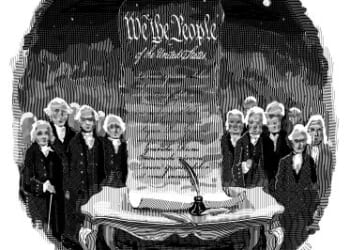John Leo Keenan wrote:
I felt the doctor was too strong in this title, that it’s not so for Mises, whom Dr. Njoya quotes to back this title up. In the quote she gives of him, it’s implicit that Mises grants History is a science in its own right. Her Mises quote says the following, and I highlight the implied definition of history as being a science:
“This is not a field for understanding. It is a task to be accomplished by the employment of the tools provided by all nonhistorical sciences. The phenomena are gathered by cautious critical observation of the records available.… What a historian asserts is either correct or contrary to fact, is either proved or disproved by the documents available, or vague because the sources do not provide us with sufficient information. The experts may disagree, but only on the ground of a reasonable interpretation of the evidence available.”
If history weren’t a science to him, he would have written “by all sciences,” “the sciences” or something like that. He implies there that history is a science to him. It’s something to improve on that she doesn’t see the fact in the quote. Without critical thinking we’re done for (as simple as that in my opinion). She should check Google AI for this. (It knows more than Njoya about Mises.) I asked it, “did Ludwig von Mises think history is a science too and do we have a quote about it?” It answered what I remembered about Mises (not as categorically), that he believed it’s “one of the two sciences of human action.” She should not have used him to back up her title because it’s not so. The correctness of AI Overview’s answer is also history and science, and in the last quote it gives at the end, the point of history being a science of human action is implied more heavily than in her quote. Google’s AI Overview (copied and pasted):
“Ludwig von Mises did not consider history to be a science in the same way that he defined the theoretical, a priori science of human action, praxeology. Mises viewed history as one of the two sciences of human action, but he drew a sharp distinction in their logical character and methods.
Mises’s View of History and Science
- History as a Science of the Past: Mises defined history as an empirical science of the past, dealing with unique, unrepeatable events and their concrete causes and effects. Its purpose is to understand the specific meaning and motivations behind individual human actions in a given context (a task Mises associated with a branch of history he called “thymology”).
- Praxeology as the A Priori Science: In contrast, Mises developed praxeology (of which economics is a part) as a theoretical, a priori science that uses deductive reasoning from the fundamental axiom of human action. Praxeology aims to discover universally valid laws and principles that are not derived from or falsifiable by historical experience.
- Distinction from the Natural Sciences: Mises argued that the methods of the natural sciences (like laboratory experiments and induction to find general laws) cannot be applied to human behavior because human action involves conscious choice and meaning, which are not present in the physical world.
Relevant Quote
While Mises did not provide a single, widely circulated quote that “history is a science,” he made numerous statements highlighting the limitations of history in generating universal laws, contrasting it with praxeology.
A key quote from his work Theory and History that encapsulates his view on what history can and cannot teach us is:
“If historical experience could teach us anything, it would be that private property is inextricably linked with civilization.”
However, a more direct quote regarding the methodological limitations of history in a scientific context is:
“History cannot teach us any general rule, principle, or law”.
He further clarified the nature of praxeology (and thus, how it differs from history) with this quote:
“Praxeology is a theoretical and systematic, not a historical, science. Its scope is human action as such, irrespective of all environmental, accidental, and individual circumstances of the concrete acts.”
The post Re: “History Is Not a Science” appeared first on LewRockwell.












